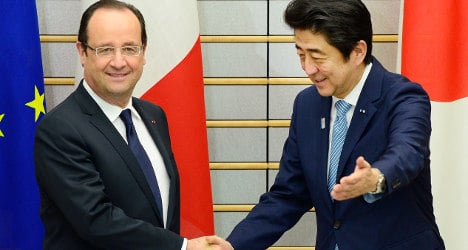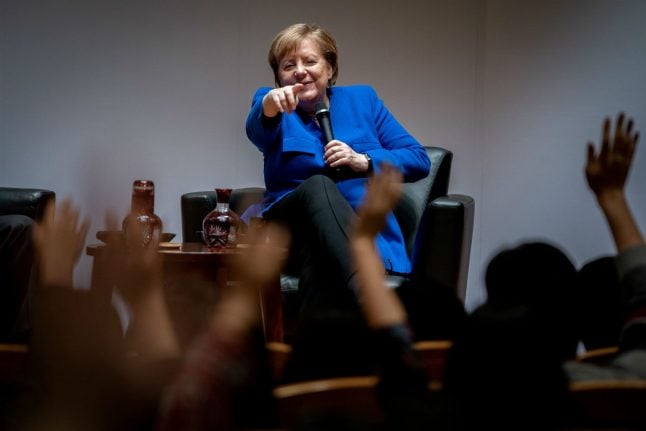French President Francois Hollande said Friday the big spending and ultra-loose money aimed at boosting Japan's flagging economy was "good news" for austerity-weary Europe.
Speaking in Tokyo, where he is on a three day visit, he noted the apparent early success of policies implemented by Japanese Prime Minister Shinzo Abe in his bid to end 15 years of growth-sapping deflation.
"The Japanese government has taken a number of measures since Mr Abe's team came to power," he told reporters. "It is not for me to judge them, they are a matter for Japan.
"But the priority given to growth and the fight against deflation, along with the emphasis on competitiveness for business… is good news for Europe, because in Europe we also have to give priority to growth."
France is leading a growing charge in Europe against Germany's insistence on fiscal discipline as the eurozone tries to dig itself out from under a mountain of uninspiring economic news.
In a draft document released in April, Hollande's Socialist Party pilloried German Chancellor Angela Merkel for her "selfish" insistence on austerity as the solution to Europe's debt crisis.
It said she was obsessed with "Berlin's trade balance and her electoral future".
Since his election a year ago, Hollande has vowed to tip the main focus of Europe's economic recovery efforts towards growth rather than austerity.
Japan's Abe announced huge fiscal stimulus measures and pressed the country's central bank into a huge easing programme as he tries to get the economy moving after years of its treading water.
Although the sheen has somewhat dulled after steep falls in the last two weeks, the Tokyo stock market had lapped up the moves, rising by around 80 percent at its highest point.



 Please whitelist us to continue reading.
Please whitelist us to continue reading.
Member comments